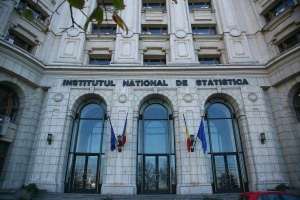Specifically, as we have informed you in the articles "Anti-corruption prosecutors investigating the Electroargeş case" and "The takeover of Electroargeş SA, blocked by the initiative of a former member of the Board of Directors of SAI Muntenia Invest", the decision of the ASF was mostly based on the court rulings concerning the purchase of 16 million shares by Constantin Relative Investments SRL, more specifically the voiding of that trade, requested by an insolvent company - Bran Oil SA.
Specifically, we are talking ruling 132/April 2nd, 2019 of the County Court of Galaţi, which was left final through the ruling 75/March 18, 2020 of the Constanţa Court of appeal, as the court of last instance upheld the voiding of the transactions concerning the 16 million shares of Electroargeş SA and ordered their return to Bran Oil SA.
Constantin Relative Investments SRL challenged the ruling of the Court of Appeal of Constanţa and mentioned that it had no way of returning those shares. Nevertheless, the obligation to return the Electroargeş shares was upheld via the court ruling. Subsequently, Bran OIL SA requested that the return of the shares be done directly, on the basis of these court rulings, through a direct transfer of shares conducted through the Central Depository, even if that were to go against the legal dispositions concerning the functioning of the stock market, as well as against the legislation of the Financial Oversight Authority, including regulation no. 10/2017 of the ASF.
In its defense, Constantin Relative Investments SRL states that the court ruling cannot be enacted in such a manner, i.e. via direct transfer, because first of all, the ruling does not decree that the transfer should take that form, and was instead such a form was rejected, and furthermore, because the conditions for performing a direct transfer, as specified in art. 70 paragraph 1 letters a-f of ASF Regulation 10/2017 are not met, and that Bran Oil SA is therefore trying to set a dangerous precedent in the interpretation of the legal provisions, and seeks to overstep the stock-market specific legislation without any legal grounds.
"The exceptions - called direct transactions - are of strict interpretation. The enforcement of a final court ruling in this matter may only be interpreted as fitting under the limited cases of direct transactions (for instance severance of joint ownership via judicial avenues) because any other interpretation would go against the indisputable meaning of the European and domestic norms concerning the final nature of the settlement of a transaction. (...) As long as a rule has been enunciated, the exceptions to it are strictly delimited, in order to allow the rule to remain applicable in the case of other situations. In legal logic, the rule coexists with the exception, as their areas of applicability are strictly demarcated, to prevent them from annihilating each other. In order to comply with this delimitation, it is strictly forbidden from extending the area of applicability of an exception by extending it to other cases than the ones specified therein. The court ruling does not fall under one of the strict grounds that can serve as a foundation of a direct transaction, enumerated in art. 70 paragraph 1 of letter a-f of the ASF regulation no. 10/2017. Moreover, the shares that ought to be returned based on the enforceable title cannot be distinguished within the shareholder's stock account (defendant in the lawsuit), making any restitution impossible. Such an impossibility of identifying the good is the equivalent of the situation of a good that cannot be delivered, liable to generate compensation via an equivalent amount", states the legal opinion drawn up by university lecturer Ph. D. Cristian Gheorghe, at the request of Electroargeş SA.
• Legal doctrine: "Settlement is irreversible from the moment of the the settlement has been exhausted as determined by the Central Depository"
According to opinions in the legal doctrine (Sebastian Bodu - "Operations on the securities market", Adrian Ţuţuianu - "Capital market. Legal regime applicable to participants", Cristian Duţescu - "Shareholder rights" and university lecturer Ph. D. Cristian Gheorghe - "Legal opinion on the transfer of the right of ownership on the shares registered in the Central Depository system",), the performance of a transaction is exhausted either through settlement (the payment of the amounts or the transfer of the shares), and the definitive nature of the settlement invovles the existence of a time when settlement becomes irreversible at any time in the future. That means that the restitution of the considerations (which represent the settlement) is prohibited, as set by Directive 26/1998 of the European Commission concerning the definitive nature of settlement in the payment systems and settlement of the shares.
Or, restoring the previous situation of the parties - like the court has ruled in the case of Electroargeş SA - would violate the principle of the definitive nature of the settlement. Especially since domestic and European regulations impose the a priori setting of a time when the definitive nature of the settlement can no longer be disputed and from which point no restitution or restoration of the previous situation is possible.
Art. 319 of the rules for the regulation concerning the organization and functioning of the Central Depository sets, in paragraph 1 that a transfer order is irrevocable from the time the matching process in the T2S platform has been achieved.
The same text stipulates that a transfer order can be unilaterally revoked by the participant or by the T2S Platform, according to the T2S documentation, until the time it becomes irrevocable according to paragraph (1).
Paragraph 3 states that starting with the moment stipulated in paragraph (1), a transfer order cannot be unilaterally revoked by a participant in the Central Depository system or by a third party, as it is protected by the provisions of law no. 253/2004.
Article 320 of the same regulation on the organization and operation of the Central Depository establishes that the settlement of transfer orders becomes final and irrevocable at the time of the settlement of transfer orders as part of the T2S Platform.
Under these circumstances, in the legal doctrine it is stated that a court ruling, rendered for completely different reasons than the ones stipulated in art.70 of Regulation 10/2017 cannot intervene concerning an irrevocable settlement because it would create a dangerous precedent by introducing a new exception, not stipulated in existing legislation, or according to the principles of law the exceptions are to be strictly interpreted, as the general rule prevails in any matter.
















































